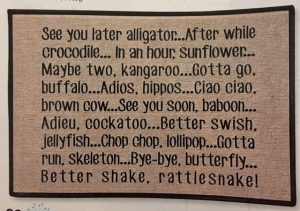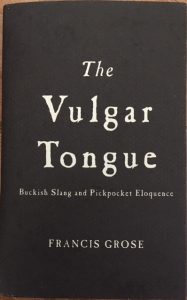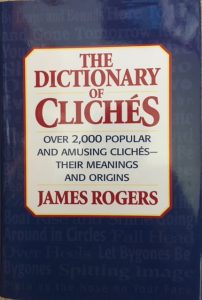In my opinion, the best use of slang is setting the time of the story. Using any of the above farewells screams the 1950s. “Gag me with a spoon” is soooo 1980s.
Slang has always been with us, evolving from docks, gutters, gambling dens, and society soirees. It changes with the times. That is its strength and its weakness. Used effectively, it lends authenticity to dialogue. But if writing about any time other than the present, tread carefully. Inappropriate slang can ruin the tone and undermine the credibility of the entire story.
As with so many things, there are books for that! When writing “historical” fiction in any genre, books such as this should rest alongside a good dictionary and a convenient thesaurus.
A seldom recognized use for really old slang: when used judiciously, it can add freshness to writing.
When the meaning is clear but the phrase isn’t current, it can sound creative. E.g., cow-handed to mean awkward, brazen faced to mean impudent or shameless, sugar stick to mean a penis.
When not to avoid clichés: when adding authenticity to dialogue. Some say you should avoid clichés like the plague, but at the end of the day, using them is as American as apple pie. Why reinvent the wheel when there are so many kick-ass expressions already out there? Don’t overdo it, but recognize that people really do say things like, “I’m wound tight as an eight-day clock” or “nutty as a fruitcake” or “Keep a stiff upper lip.” Sometimes a repeated cliché can be an effective speech tag for a specific character.
Last but not least, browsing a good book of clichés can be informative. Kick the bucket has meant to die since at least 1785! And keep your shirt on, meaning to stay calm, predates 1854. On the other hand, kick up your heels, meaning show spirit or having a great time, is a far cry from 1500, when it meant to die. So, one more for the reference shelf!



